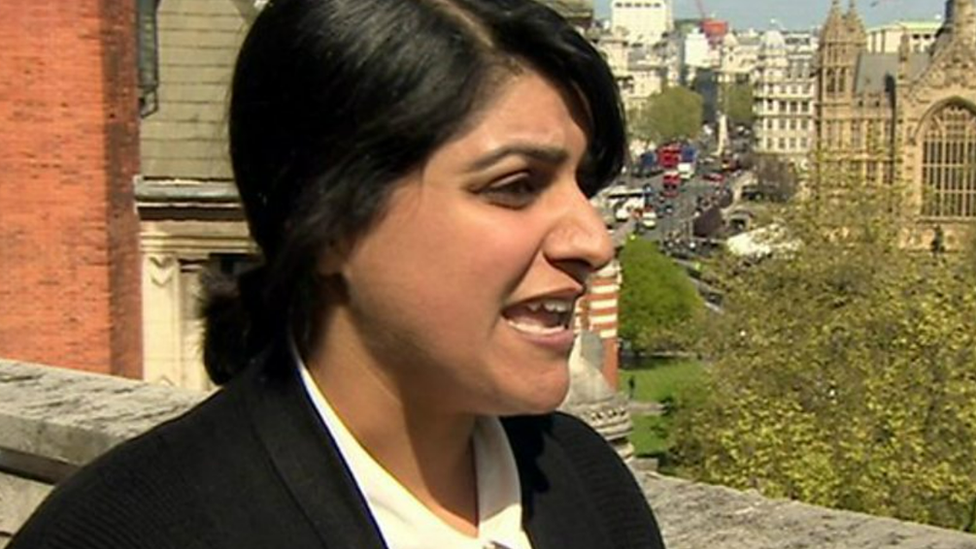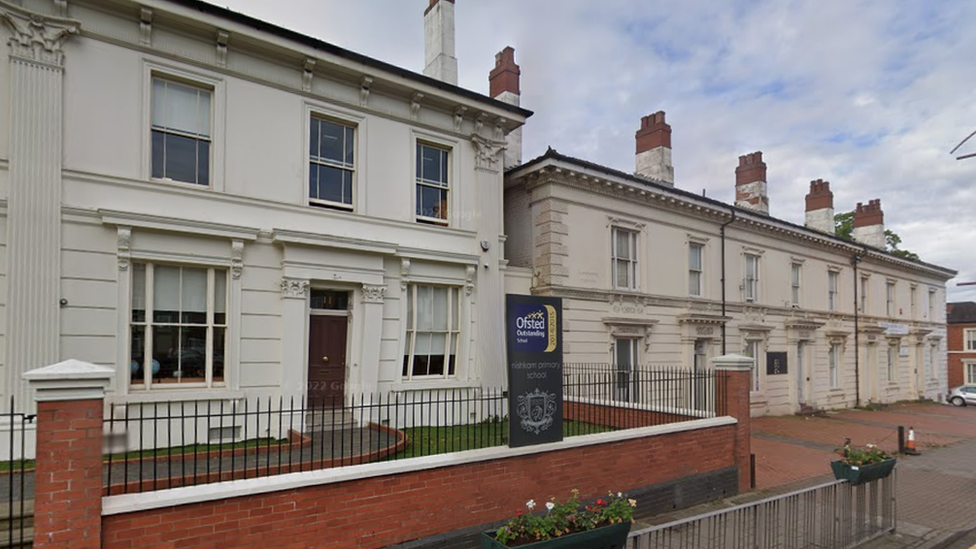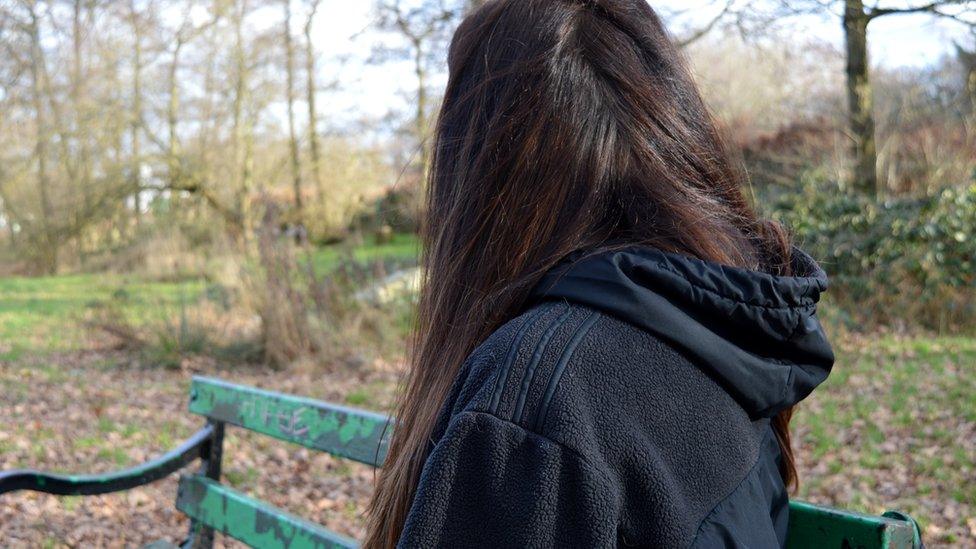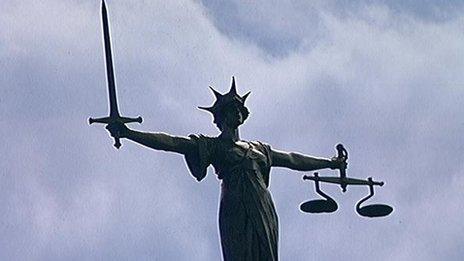Handsworth school calls for action over 'nightmare neighbours'
- Published

Shabana Mahmood MP has been lobbying government alongside the city council to improve regulation of the sector
A supported accommodation home in Birmingham at the centre of alleged abuse towards pupils and their parents is owned by the city council, the BBC has learned.
Gurpreet Kaur, head teacher of Nishkam Primary School said pupils had faced verbal abuse and seen fights as well as evidence of drug-taking.
She said residents had even jumped over fences on to school grounds.
The local authority said it had been unable to substantiate the allegations.
Supported or exempt accommodation is a type of shared housing designed for some of the most vulnerable members of society, including those recovering from substance abuse or with mental health problems, prison leavers and rough sleepers.
At their best they provide rooms and effective support.
However, Birmingham City Council and Shabana Mahmood, the MP for Birmingham Ladywood, have lobbied the government for stricter regulation of the industry, saying many residents across the UK are not getting the care they need.
Syringes, condoms and drugs-litter
By registering as supported accommodation, operators have been exempt from the usual licensing checks by local authorities and can claim a premium through benefits.
Ms Mahmood said it was "particularly disappointing" to discover one of two homes that had prompted complaints from local residents in Handsworth was actually owned by the local authority and leased to a private operator.
Nishkam head teacher Ms Kaur said the problems near the school on Soho Road began in 2012, the year after the school opened, when a man was murdered at the house.
She said since then there had been a series of incidents, including:
"Pornography, syringes, condoms and drugs-litter" left in the street, which staff had to go out and sweep up
Residents at the supported accommodation leaping over the fence on to school property
Loud music and bad language being heard from the house
Parents being approached by intoxicated residents outside the school

Nishkam Primary School is next door to the two properties being used as "exempt accommodation"
On one occasion she said young children "witnessed a bloody altercation between the residents next door".
That took place as the children were being collected in November 2020, terrifying parents and their children.
Ms Kaur said the children were brought back in and the school went into lockdown, and as a result those children who did return the next day were "crying and nervous" and in need of reassurance.
Although police have been kept informed, security has been hired, and attempts have been made to talk to the residents, she said she was frustrated action had not been taken.
"We don't want to wait for something serious to happen," Ms Kaur said.

Shuranjeet Singh said Soho Road was not a suitable place for the supported accommodation
Shuranjeet Singh, who leads on housing for the local Neighbourhood Watch, said at the worst times, he had been getting several reports of unpleasant incidents a week.
He said it was mainly abuse and anti-social behaviour directed at parents of the local school and believed there was a "huge lack of regulation".
Mr Singh also believes there is a wider problem, because there is a "cluster of exempt properties", numbering around 20 in just a handful of streets.
Anti-social behaviour
He said he understood there was a "huge need" for these houses, but said they should be "in places where there is less existing socio-economic depravation and less serious crime".
Labour MP Ms Mahmood said she had received regular complaints about "anti-social behaviour associated with this particular property".
She said: "I would have expected the council as the landlord of that property to have dealt with the matter much more swiftly that they actually have done."
Ms Mahmood added she had campaigned with the local authority, to persuade the government to introduce stronger regulation for the industry.
She said she was asking for operators to pass a "fit and proper person" test and for annual checks to be carried out, to make sure the funding they received to run the homes was being used in the way it was intended.
Earlier this year the government said it was hoping to introduce new measures to crack down on "unscrupulous" operators.
Birmingham City Council said it was "very aware of the issues surrounding exempt accommodation" and that it had hosted a day of discussion about the issue, but it had very little control over the sector.
It said it was campaigning for stricter regulation and seeking to "close down bad providers".
In relation to the property it owns on Soho Road, it said it has received a "number of representations" and would continue to work with partners and the police to monitor the property.
"The investigations of the Supported Exempt Accommodation partnership were unable to substantiate the allegations made," it added.

Follow BBC West Midlands on Facebook, external, Twitter, external and Instagram, external. Send your story ideas to: newsonline.westmidlands@bbc.co.uk, external
Related topics
- Published10 March 2022

- Published28 February 2013
